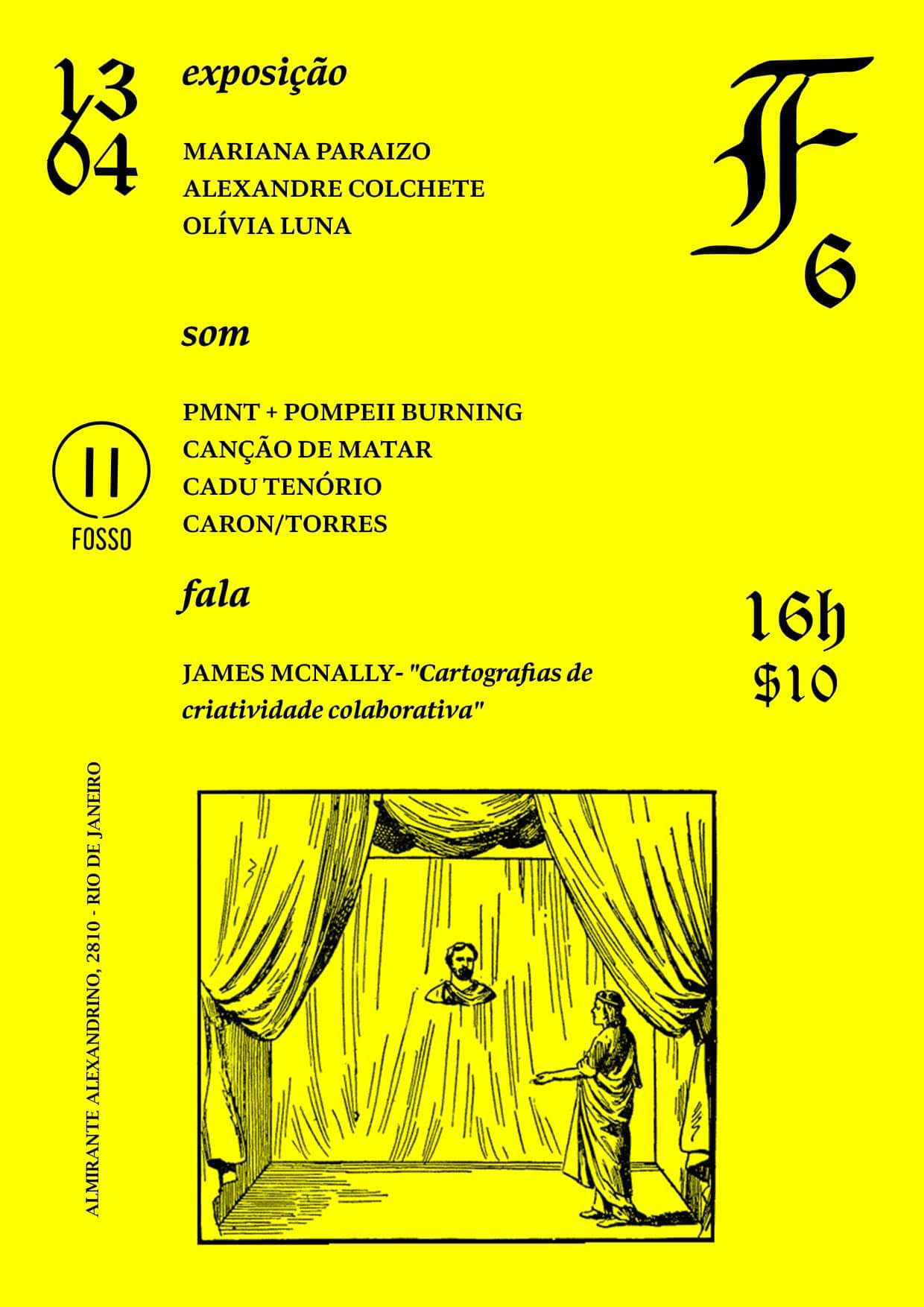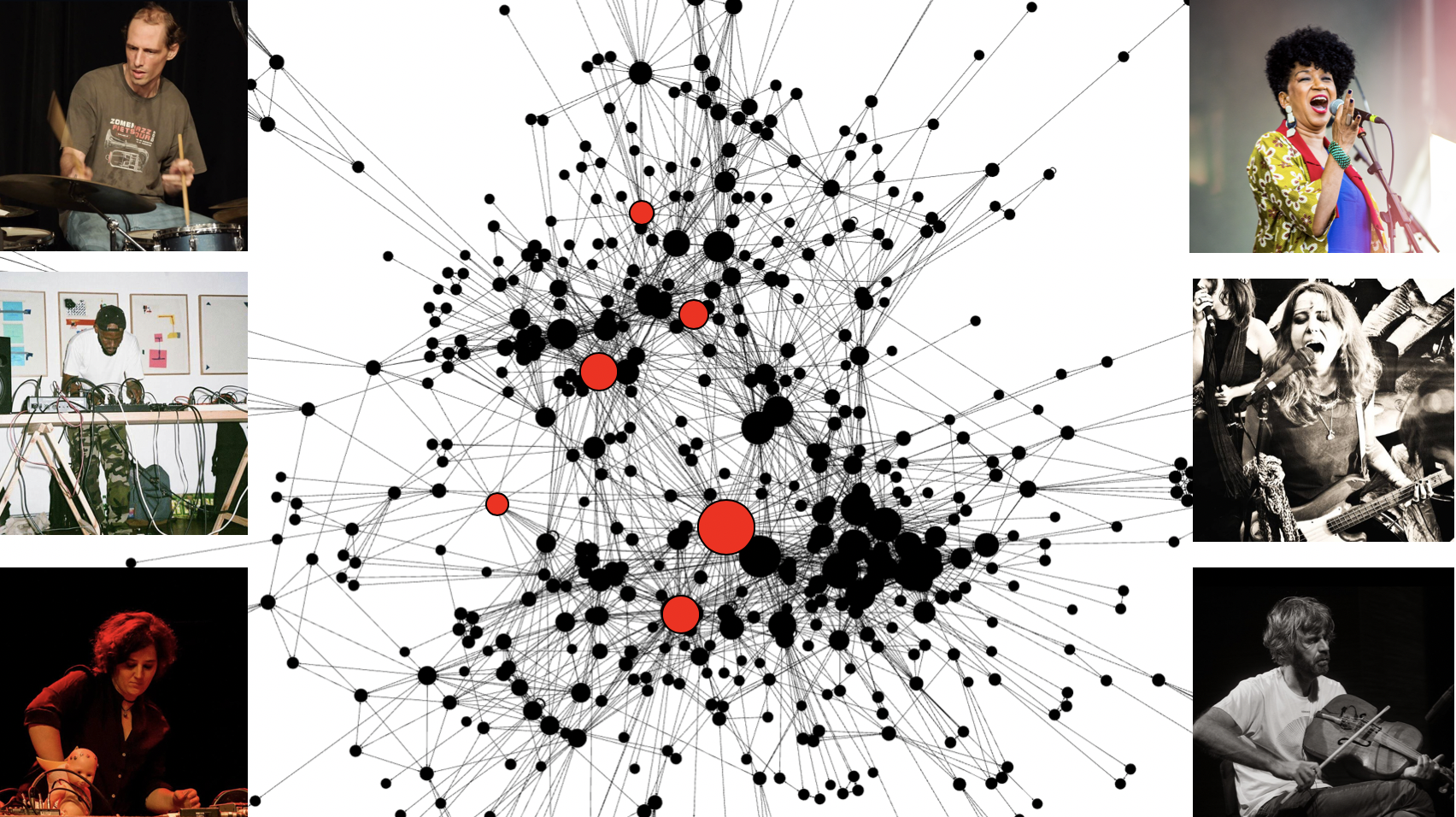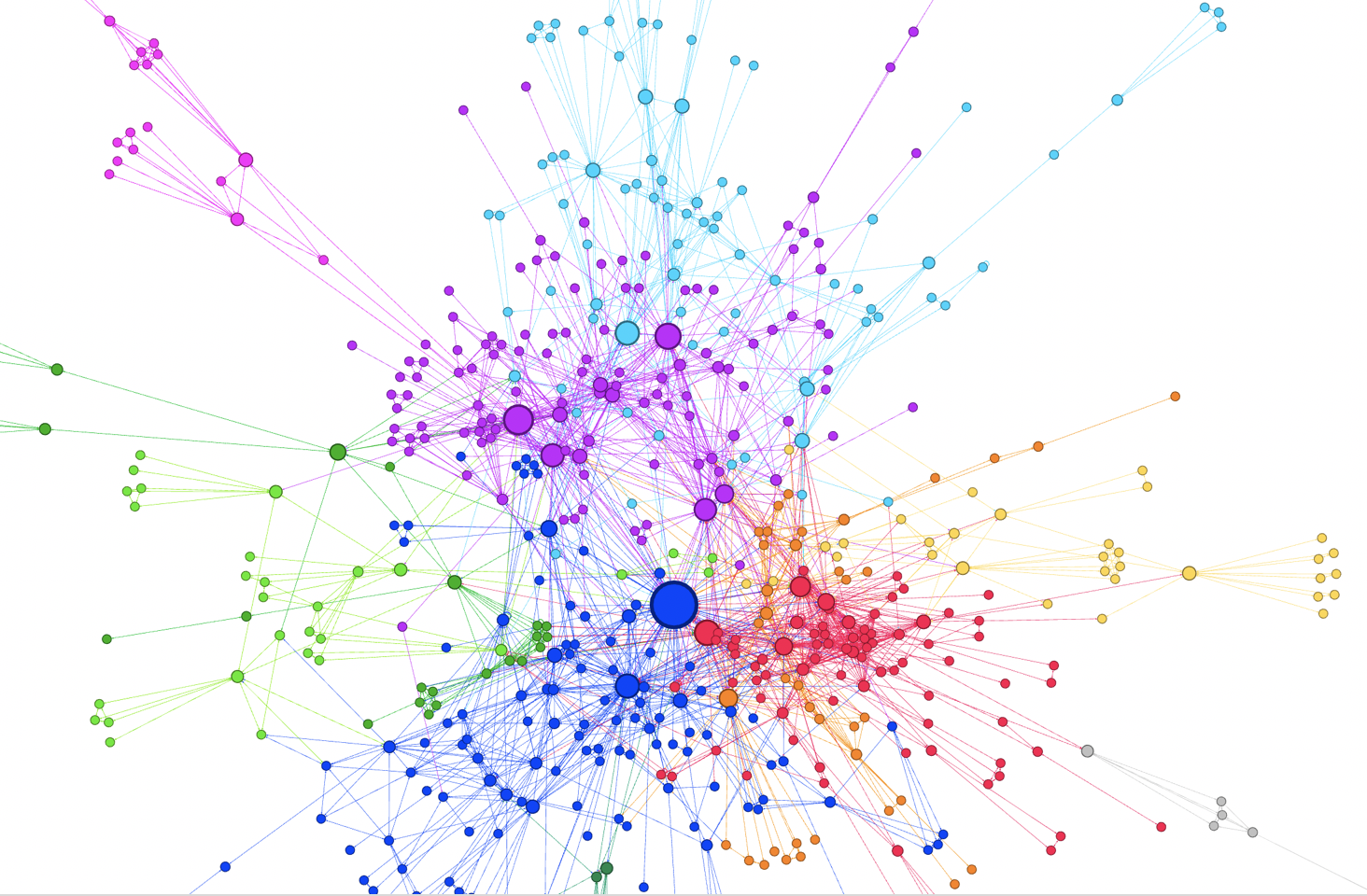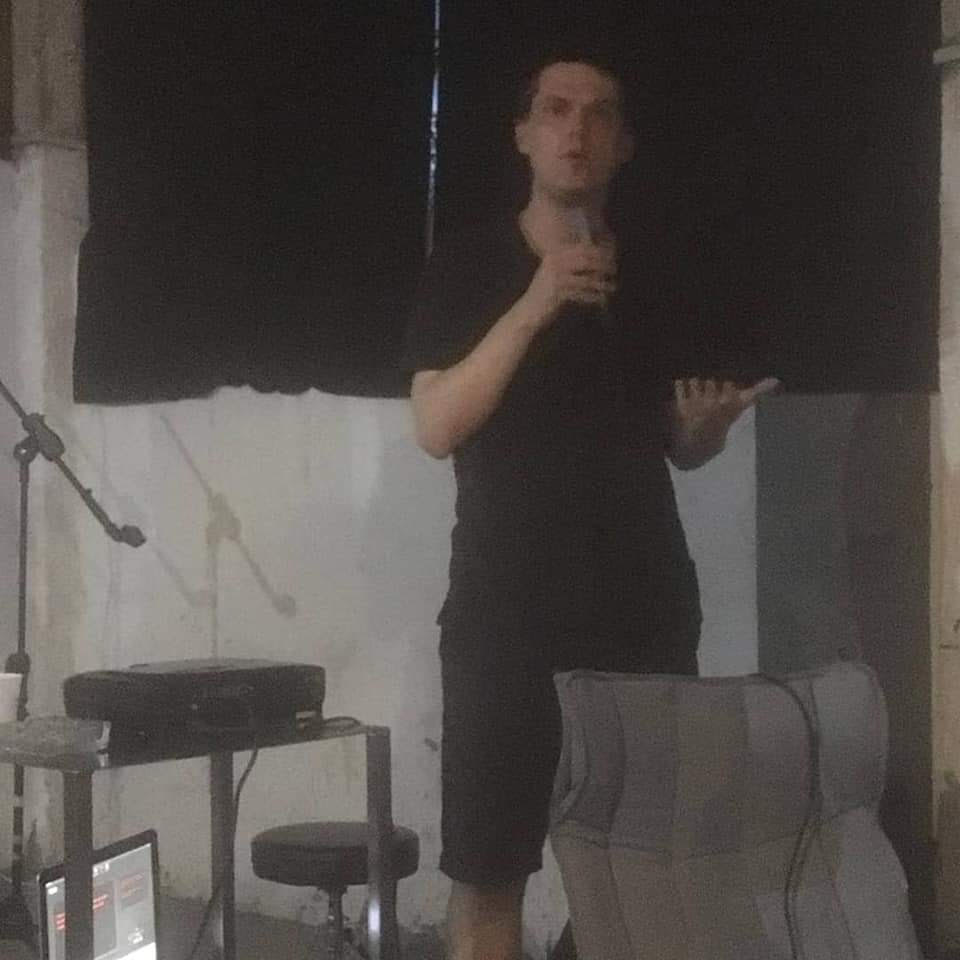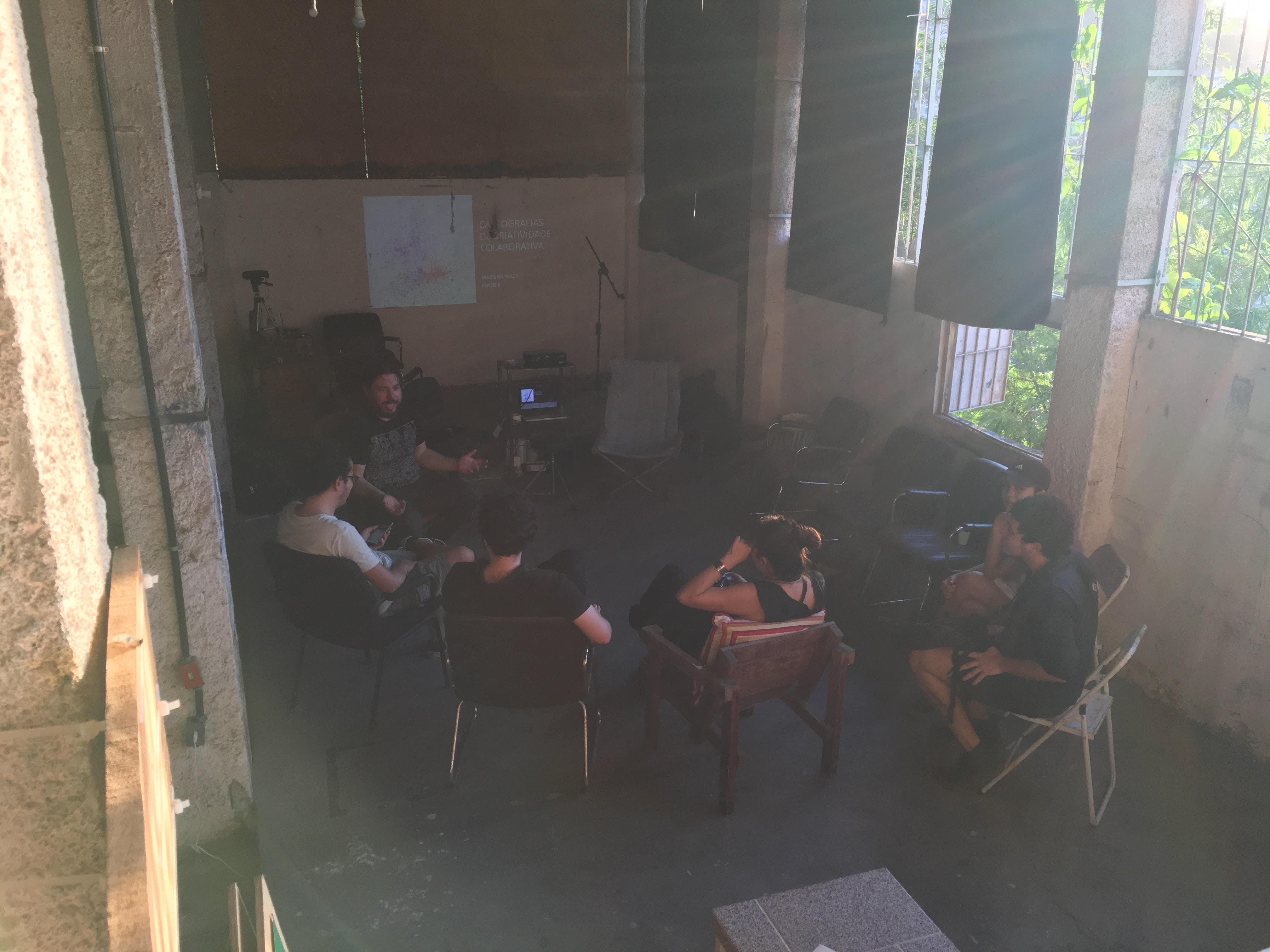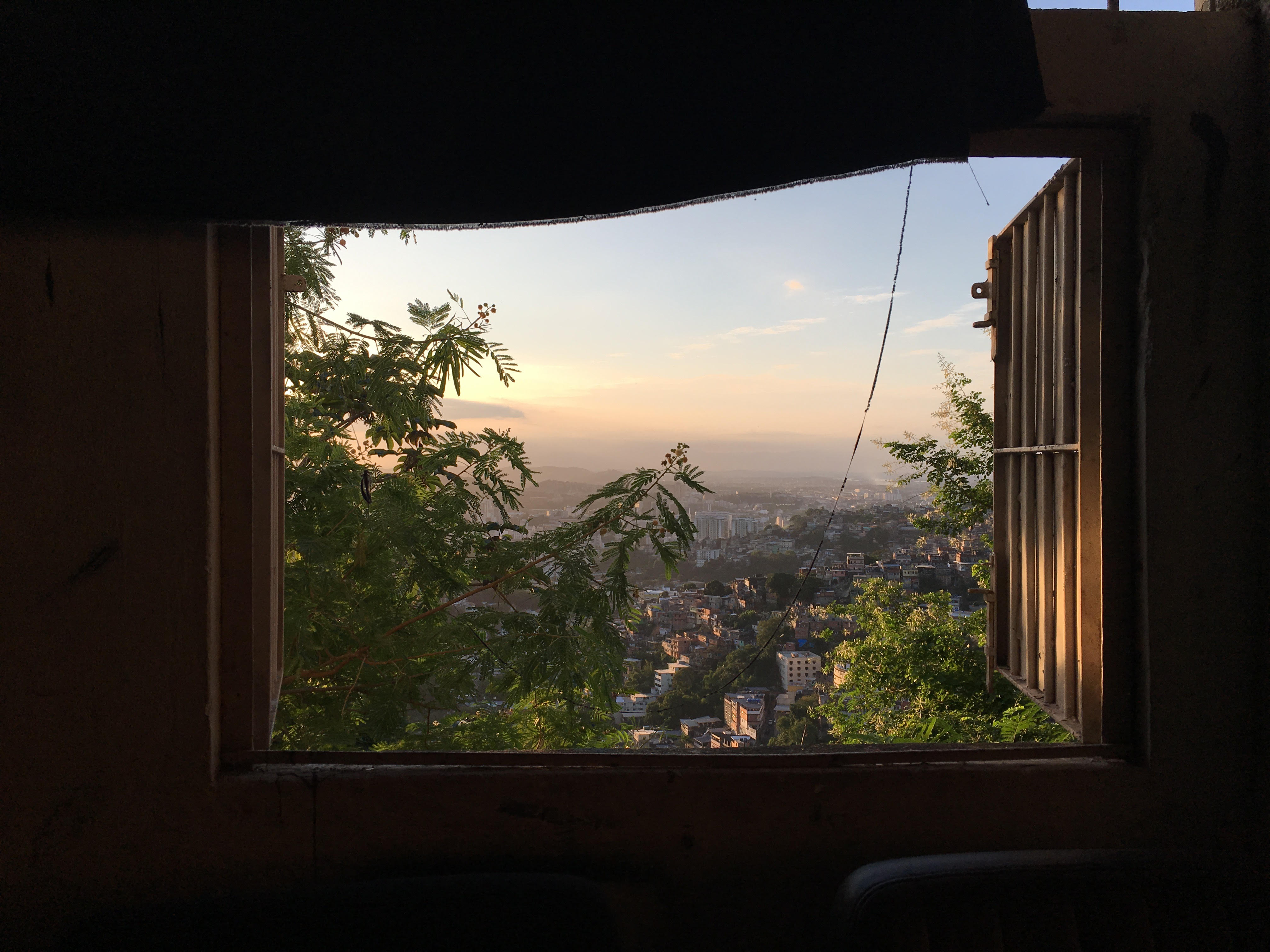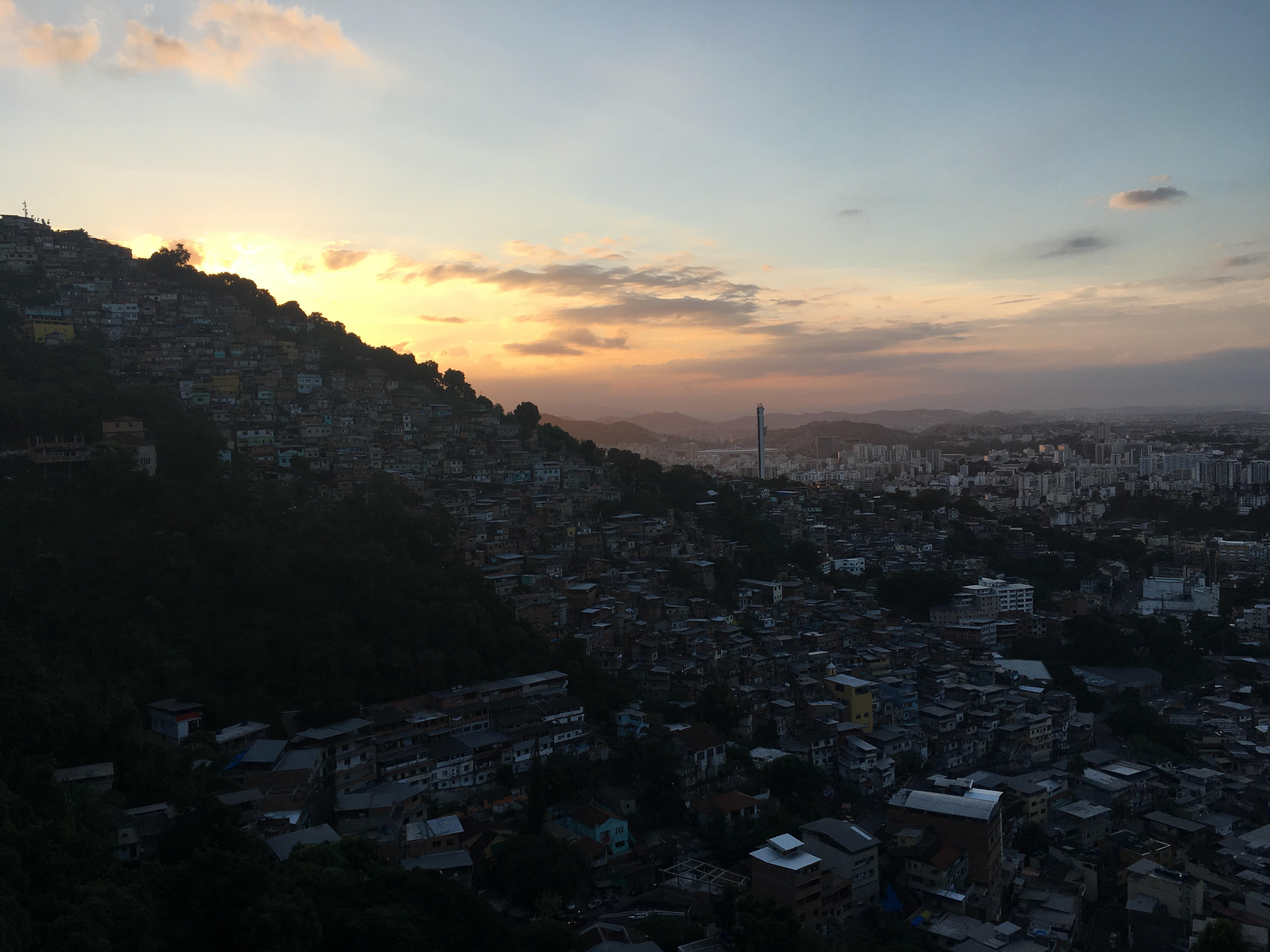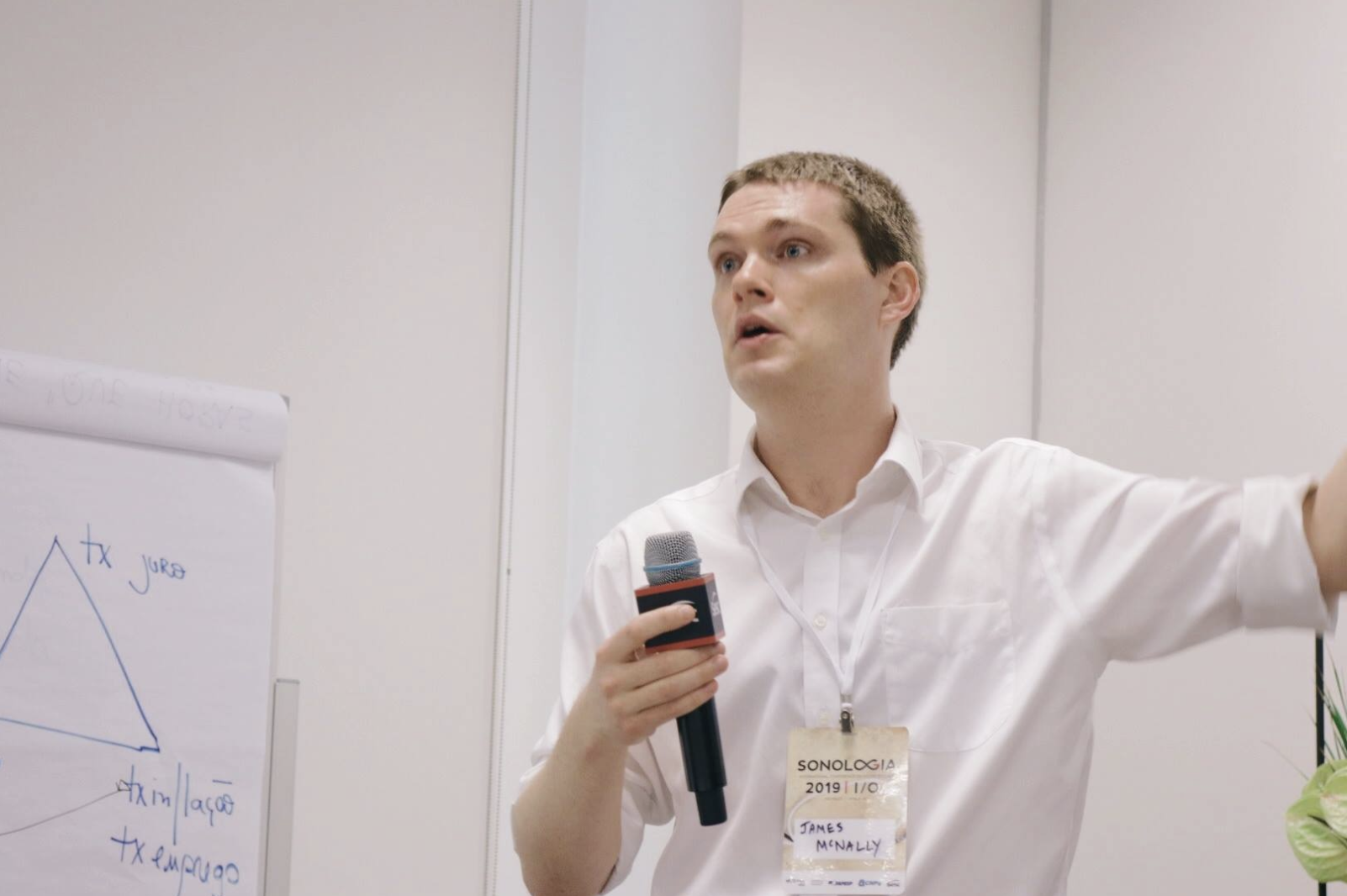
James McNally recently participated in two events in Brazil. In early April, he presented his research in São Paulo at the Sonologia International Conference on Sound Studies, hosted by the University of São Paulo. The conference lasted four days, with participants from countries across Europe, Australia, and the Americas. James’s presentation, “Sampling the City: Field Recording as Resistant Creative Practice” (abstract below), examined the ethical issues and creative possibilities of urban field recording, focusing on the work of Brazilian sound artist Renata Roman.
Shortly after, James delivered a lecture in Rio de Janeiro at the cultural event series Fosso. The series, held in the beautiful neighborhood of Santa Teresa, brings together activists, researchers, visual artists, and experimental musicians from different practices for an evening of performances, exhibitions, and discussions. In his talk, “Cartografias de criatividade colaborativa” (Cartographies of Collaborative Creativity), James used ethnography and social network analysis to discuss the collaborative dimensions of São Paulo’s large and diverse experimental music scene. The event also counted several participants in that very scene as the evening’s musicians, including PMNT + Pompeii Burning (Fabiano Pimenta & Filipe Pompeu), Canção de Matar (Rayra Costa & Talita Araújo), Cadu Tenório, and Jean-Pierre Caron and Gustavo Torres. A wonderful evening was had by all!
Sonologia International Conference on Sound Studies
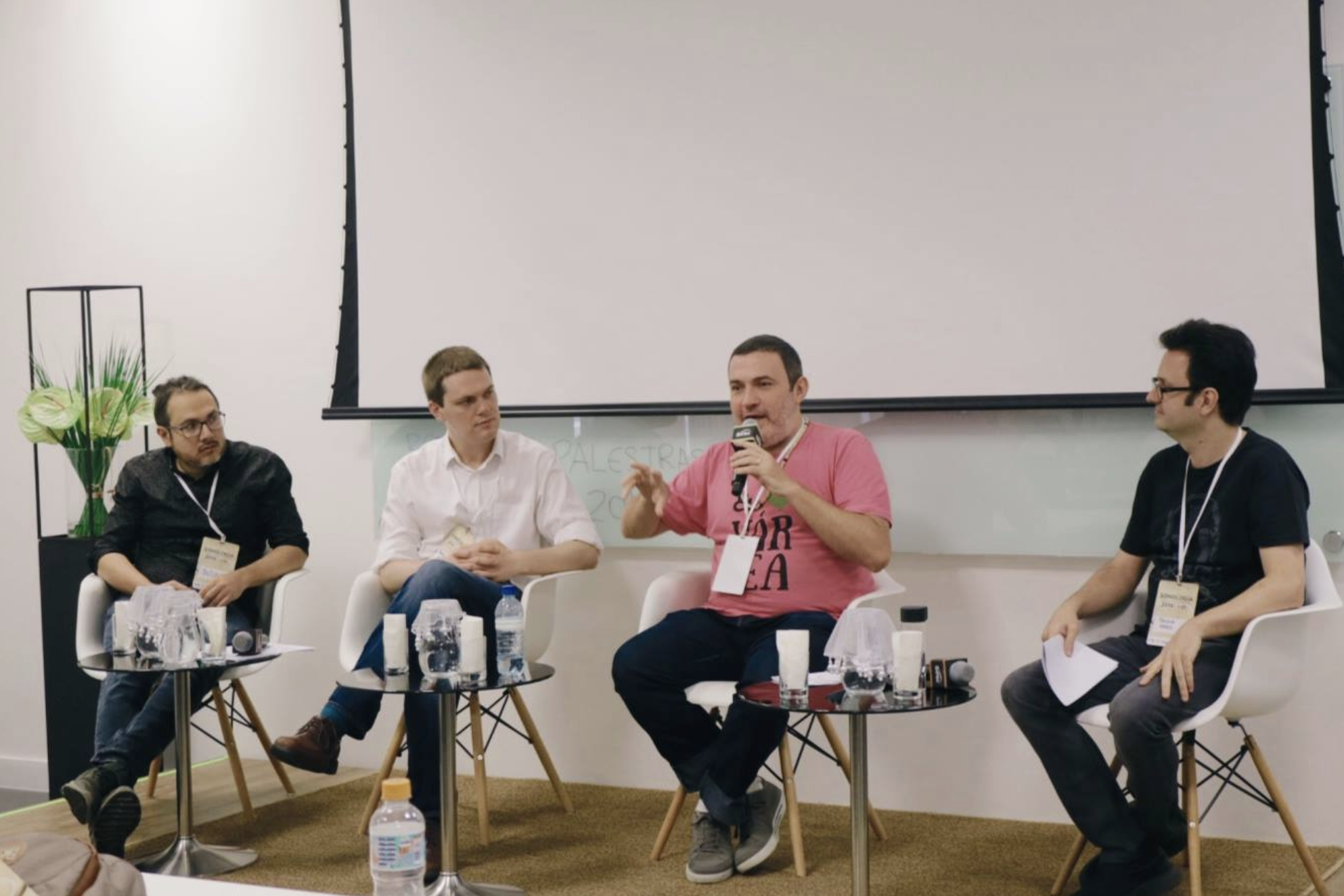
Julián Jaramillo Arango, James McNally, José Guilherme Allen Lima, and Paulo Assis Barbosa participate in a panel discussion at Sonologia 2019.
Lecture at Fosso
Pictures: Click to enlarge and view captions...
Abstract: “Sampling the City: Field Recording as Resistant Creative Practice”
This paper investigates the ways in which individuals employ field recording as a means of interrogating and confronting urban experience, space, and sound. In order to address this phenomenon, I examine the work of the São Paulo-based sound artist Renata Roman. Roman uses field recording as a primary creative technique and is the founder of the collaborative online project São Paulo SoundMap, which solicits field recordings of the city’s different neighborhoods from individuals across the city. Incorporating data from participant-observation and interviews with Roman, the paper argues for understanding techniques such as field recording and sound mapping as critical means for individuals to respond to marginal urban experiences and reconfigure urban space and sound. As a case study, I examine Roman’s 2015 electronic music work “Sampa,” which incorporates collaborative field recordings made with recent immigrants to São Paulo from Bolivia and Haiti. My investigation approaches field recording as a form of everyday resistance (De Certeau 1984:97–98) with the potential to challenge the hegemony of the visual, highlight peripheral urban experiences, and provoke listeners to re-evaluate the way they conceptualize urban space and sound. I conclude with a discussion of the ramifications of this phenomenon in the personal sphere, focusing on how field recording enables individuals to mediate urban experience on their own terms and take control of an element of cities that many view as oppressive.
Recent Posts
SMR to Host Midwest Graduate Music Consortium 2025 Conference – January 13, 2025
SMR Welcome BBQ at County Farm Park – October 01, 2024
Julian Grey defends dissertation – June 05, 2024
Michaela Franzen defends dissertation – May 21, 2024
Kai West defends dissertation – May 16, 2024
Micah Mooney and Carlos Pérez Tabares present at Music Theory Midwest – May 12, 2024
SMR end-of-year round-up at County Farm Park – April 25, 2024
SMR hosts Research Showcase – September 29, 2023
 Society for Music Research
Society for Music Research
